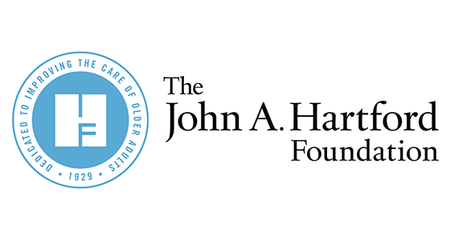New Grants Totaling Over $7.7 Million Approved by JAHF Board of Trustees

The John A. Hartford Foundation Board of Trustees approved grants for four initiatives totaling $7,735,595 that will improve nursing home care, launch a national Age-Friendly Health Systems research community, produce a documentary on aging in America and ensure diagnostic excellence for older adults. The board also elected two new members, Ginna Baik and Phyllis D. Meadows.
Revisiting Teaching Nursing Homes, Phase II: Disseminating Across Pennsylvania ($3,333,033 for 3 years)
Health Careers Futures, The Jewish Healthcare Foundation
This grant will continue the implementation of a contemporary version of the Teaching Nursing Homes model to demonstrate how enhanced partnerships between academic nursing programs and nursing homes can improve quality. This phase builds on a prior grant that established partnerships between four nursing homes and three schools of nursing in Pennsylvania. The next phase will spread the model to 400 nursing homes and 30 schools of nursing in Pennsylvania, promote nursing home participation in the Age-Friendly Health Systems movement and have at least six other states engaged in the Revisiting Teaching Nursing Homes model. The Jewish Healthcare Foundation co-funds this initiative.
Launching and Empowering a National Age-Friendly Health Systems Research Community ($2,513,540 for 3 years)
University of California, San Francisco (UCSF)
This project will expand the evidence on the equitable implementation, scale-up and impact of the Age-Friendly Health Systems 4Ms Framework (What Matters, Medication, Mentation and Mobility) via three complementary sets of activities. First, it will design and launch an Age-Friendly Health Systems Research Council and national Research Network. Second, it will collaborate with three to five Age-Friendly Health Systems sites to co-develop scalable resources that enable evaluation of the 4Ms. Third, it will partner with the Institute for Healthcare Improvement and 10 health systems to qualitatively understand how to achieve equitable, reliable practice of the 4Ms at enterprise scale. This project follows prior research by the University of California, San Francisco to qualitatively assess the implementation and scaling of the 4Ms across three health systems and quantitatively analyze delivery of 4Ms care for more than 19,000 older adults at UCSF.
Ensuring Aging Content in Diagnostic Excellence Initiatives ($1,190,802 for 3 years)
- Fellowship in Diagnostic Excellence Program and Diagnostic Excellence Age-Friendly Health Systems (AFHS) Seed Grants Program ($700,007 for 3 years)
Society to Improve Diagnosis in Medicine - Forum on Advancing Diagnostic Excellence and National Academy of Medicine Scholars in Diagnostic Excellence ($390,795 for 3 years)
National Academies of Sciences, Engineering, and Medicine - Promoting Diagnostic Excellence Across the House of Medicine ($100,000 for 1 year)
Council of Medical Specialty Societies
Three grants will advance diagnostic excellence for older adults as a part of larger diagnostic excellence initiatives funded by the Gordon and Betty Moore Foundation. The National Academies of Sciences, Engineering, and Medicine will establish a Forum on Advancing Diagnostic Excellence and continue the National Academy of Medicine Scholars in Diagnostic Excellence program, with JAHF funding to support aging content in the forum and an aging-focused scholar each year. The Society to Improve Diagnosis in Medicine will continue its Fellowship in Diagnostic Excellence Program and DxQI Seed Grant Program, with a JAHF-supported Age-Friendly Fellow each year and at least four Age-Friendly Health Systems DxQI Seed Grants. The Council of Medical Specialty Societies will be supported to provide diagnostic excellence grant awards to member societies with at least four aging-focused projects supported by JAHF.
Why Survive: Being Old in America Documentary Film ($698,220 for 2 years)
Generation Entertainment/American Society on Aging
This grant will support the production of a documentary for public television commemorating the fiftieth anniversary of the Pulitzer-prize-winning book, Why Survive: Being Old in America, by Dr. Robert Butler, the first director of the National Institute on Aging and a pioneer in the field of geriatrics. Using Butler’s landmark book as a lens and a guide, the one-hour film will explore the challenges identified a half-century ago and examine how far society has progressed, in what areas it has fallen short and how best to move forward in this era of longevity. The film will feature health care experts, policymakers, and advocates, along with older adults themselves. The American Society on Aging serves as the fiscal agent for the film to be produced by Generation Entertainment.
